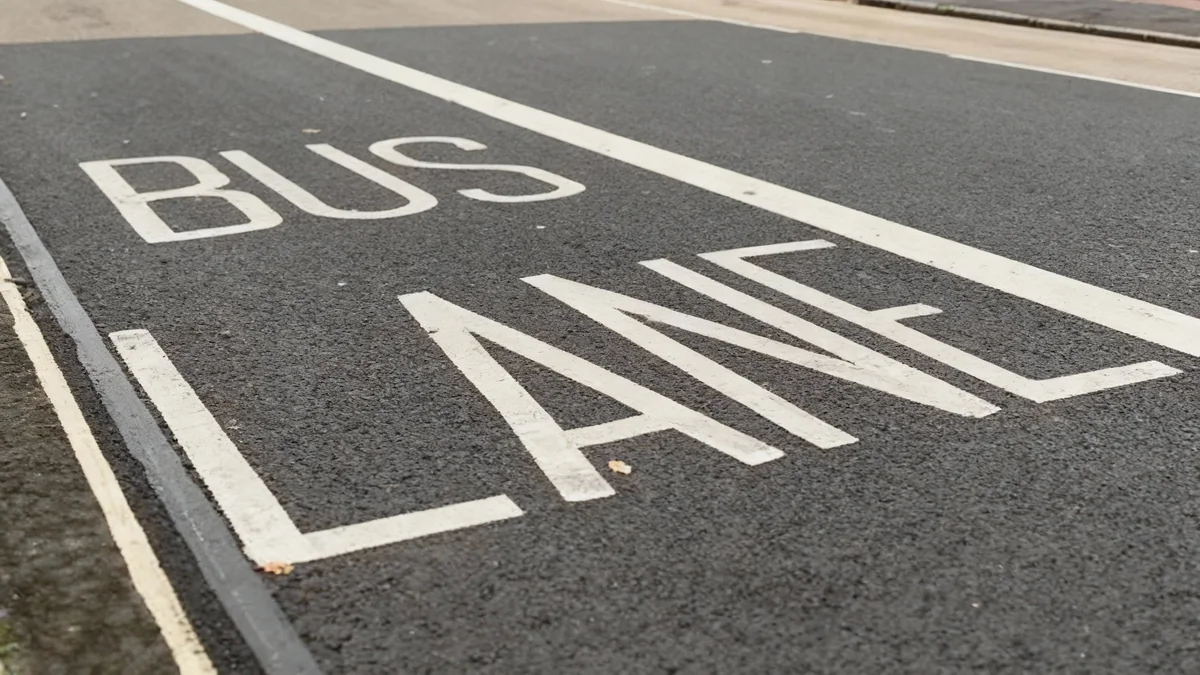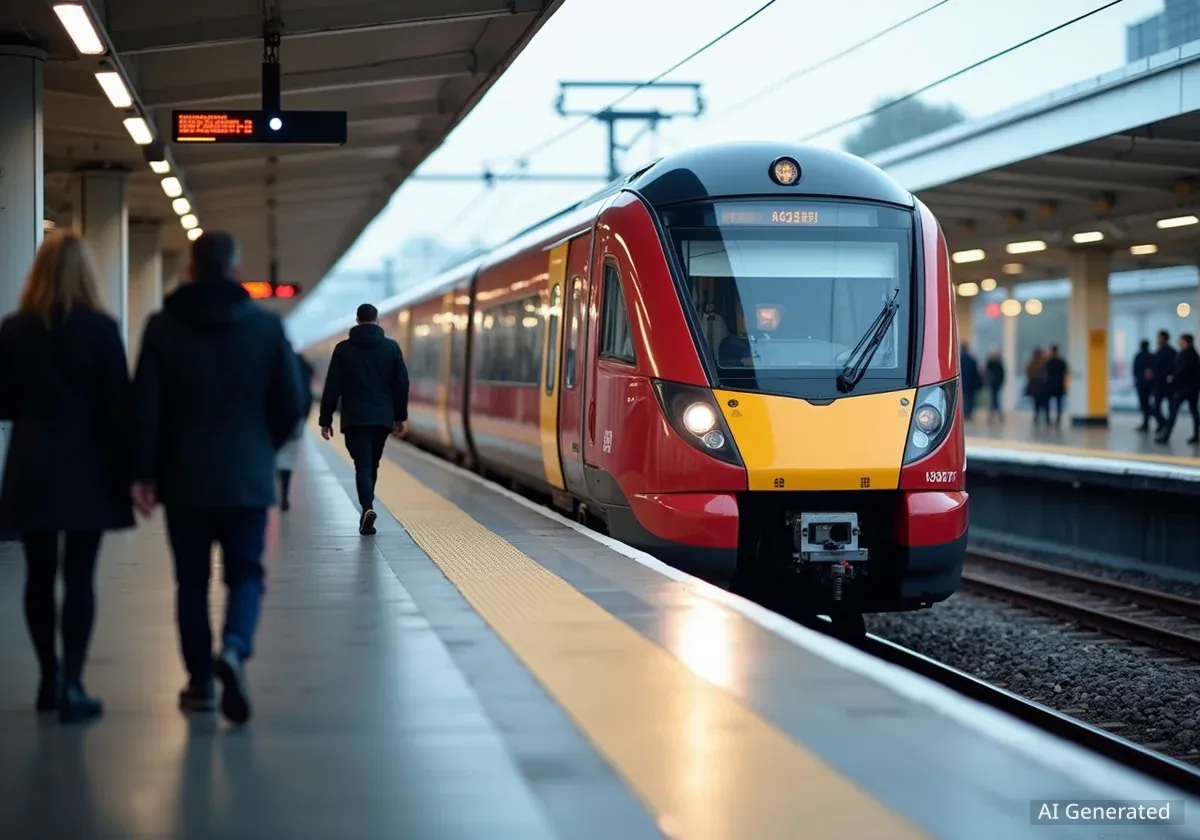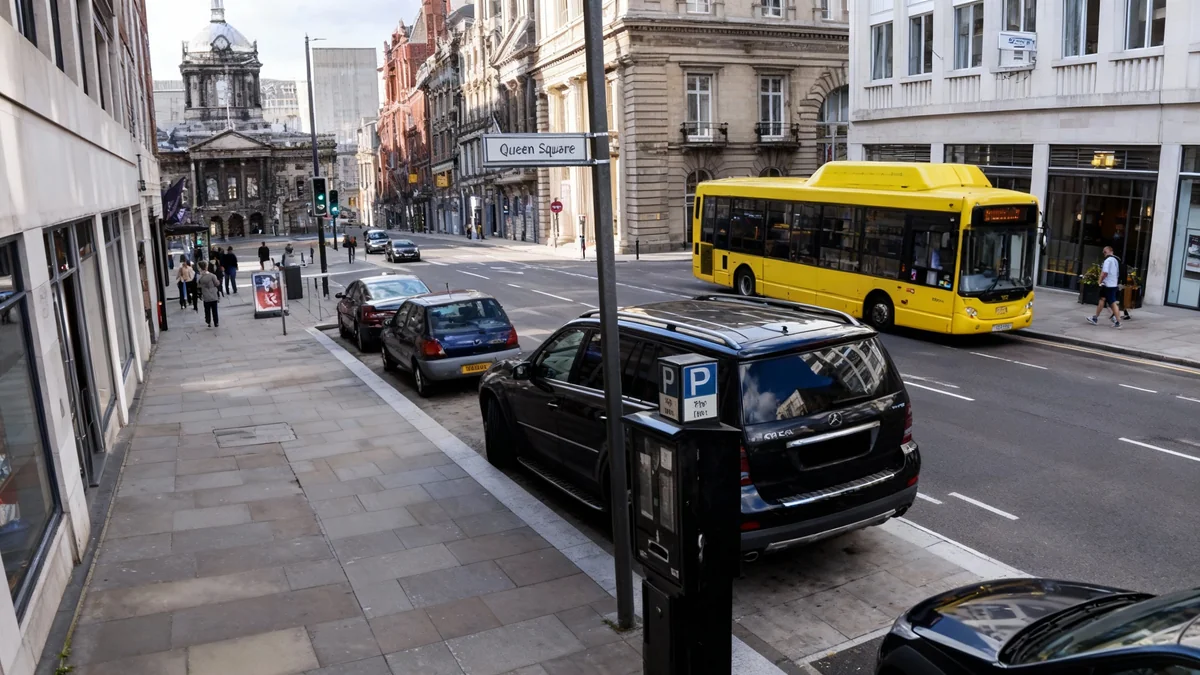Liverpool City Council is set to approve a new parking strategy designed to reduce the number of private vehicles in the city centre. The plan, which includes removing existing parking sites and exploring a workplace parking levy, has prompted warnings from opposition councillors about a potential negative impact on the local economy.
Key Takeaways
- Liverpool City Council is expected to sign off on a major new parking strategy this week.
- The plan aims to decrease city centre car use by removing parking spaces and building a new multi-storey car park on the outskirts.
- Opposition councillors have raised concerns, suggesting the move could be perceived as a "war on cars" and harm local businesses.
- Critics argue that improving public transport should be the priority before implementing major changes to parking.
Details of the Proposed Parking Strategy
Liverpool City Council's new parking strategy is intended to address issues of congestion and air quality in the city centre. According to a council report, the availability of parking is a primary factor that encourages private vehicle use, leading to traffic, pollution, and conflicts with pedestrians and cyclists.
To counter this, the strategy outlines several key proposals. These include the phased removal of some existing city centre parking facilities. The council also plans to investigate a potential tax on employers who provide parking spaces for their staff, a model known as a workplace parking levy.
A central part of the proposal involves the construction of a new multi-storey car park. This facility would be located on the edge of the city centre, encouraging drivers to park and continue their journey using public transport or by walking.
Council's Stated Goals
The local authority's report states that its main objectives are to reduce congestion, improve air quality, and create a safer, more pleasant environment for pedestrians and cyclists in the heart of the city.
Opposition Warns of Economic Risks
The plan has drawn significant criticism from opposition leader, Councillor Carl Cashman. He has warned that if not handled carefully, the strategy risks alienating visitors and residents, potentially damaging Liverpool's economy.
Cllr Cashman described the potential outcome as a "war on cars," suggesting the council could send a message that drivers are not welcome in the city. He argued that the focus should be on encouraging visitors, not deterring them with restrictive parking measures.
"Residents and visitors are getting so many mixed messages from the council that it risks becoming a war on cars and turning people away. We should be actively encouraging more people to come to Liverpool and spend money, not sending a message that if you drive in, you’re not wanted."
The Liberal Democrat leader stressed that the council should avoid making "rash judgments." Instead of penalizing drivers, he suggested the priority should be to make public transport a more attractive and viable alternative.
Focus on Public Transport and Accessibility
A key point raised by critics is the current state of public transport in the Liverpool City Region. Cllr Cashman argued that many people choose to drive because they cannot rely on other options, especially late at night.
He highlighted the disparity with other major cities, pointing to Manchester's Metrolink tram system as an example of effective mass transit. He noted Manchester's network of late-night trams and large park-and-ride facilities, which Liverpool currently lacks.
"We know what gets people out of their cars — joined-up thinking around mass transit — and at the moment, that doesn’t exist in Liverpool," Cllr Cashman stated. He pointed out that major events at the M&S Bank Arena often finish after the last trains have departed, leaving attendees with few options other than driving.
Practical Concerns for Drivers
Cllr Cashman also emphasized that for many people, driving is the most practical choice. This includes individuals with disabilities, those with low mobility, or large groups travelling together. The opposition argues that the strategy must not disproportionately affect these groups.
Consideration for Electric Vehicles and Future Trends
Another concern is that the strategy may not adequately account for the increasing adoption of electric and hybrid vehicles. Cllr Cashman claimed the council's report overlooks this long-term trend, risking the penalization of drivers who have already switched to more environmentally friendly cars.
"Many people now drive electric vehicles, which will be the norm in a few years’ time," he said. "If the Council rushes this, they risk damaging Liverpool’s economy by discouraging car users whose vehicles are now much more environmentally friendly."
A Call for a Coordinated Approach
The opposition is calling for a more holistic approach before any significant changes are made to city centre parking. This would involve collaboration with transport providers, local businesses, residents, and other stakeholders across the city region.
The argument is that a reliable and comprehensive public transport system must be in place first to encourage a natural shift away from car dependency. Implementing parking restrictions without viable alternatives, critics say, could push visitors away from the city centre.
As a final point, Cllr Cashman suggested that councillors should lead by example. He proposed that if the new strategy is approved, all councillors should give up their free parking permits and use public transport instead. "The Liberal Democrats are behind that," he concluded.





